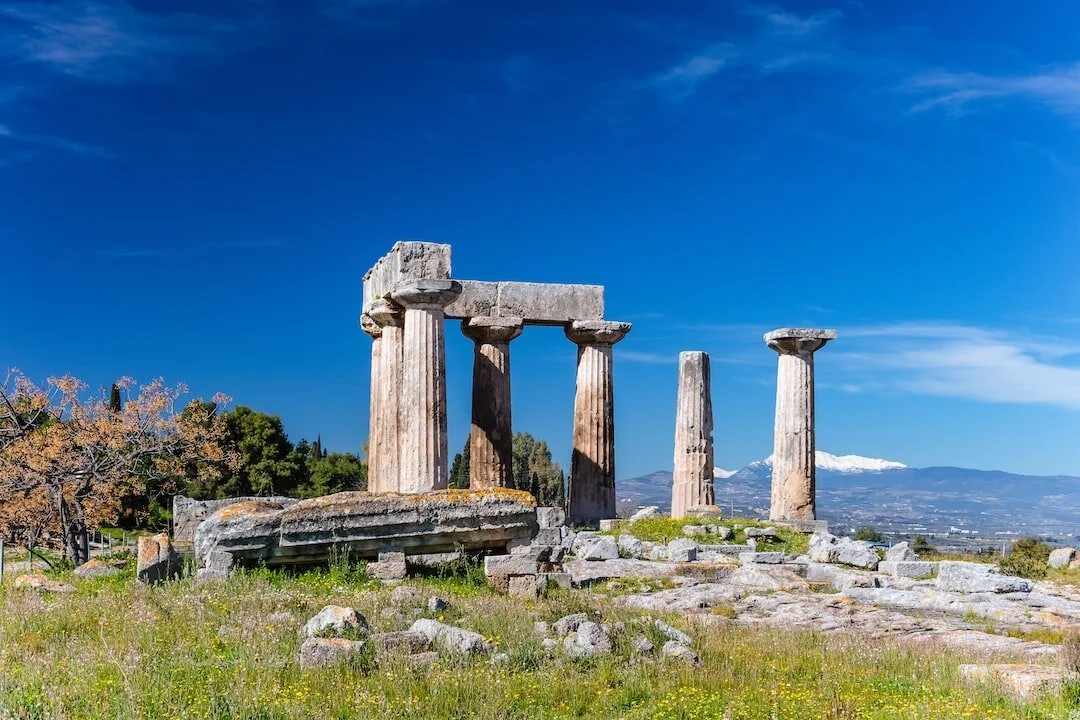The Third Heaven... a quick bit of theological geography. In the Bible’s view of the world there are three heavens (note how often ‘heavens’ is plural, Gen.1:1, 2:1, Is.13:13, Acts 14:15, Rev.20:11 to cite just a few). The first heaven is what we would call the sky or the earth’s atmosphere. The second is what we refer to as ‘space’, and the third heaven is God’s throne room, or what we colloquially actually call ‘heaven’ (or paradise, 12:4). This is where Paul finds himself – though interestingly even when he feels he has no choice but to acknowledging this happened, he gives no detail and he insists on doing so in the third person. That in itself should warn us against those who claim such experiences... and then write books, and make You-tube videos about it! I’m pretty sure I read there that ‘no-one is permitted’ to speak of such things (12:4). Just as an aside, my own thought is that this is why Paul is given the ability to speak in the tongues of angels (I Cor.13:1). because, you know, when you’re in the Third Heaven, that’s what they speak with...
Anyway, we are clearly operating at the edge of what has been revealed in the Scriptures. As such we should probably tread carefully. Paul speaks of such things as ‘surpassingly great revelations’ (12:7), and left to his own devices, would gladly ‘place his hand over his mouth’. It was something utterly beyond anything he had experienced, and almost beyond anything he could make sense of (12:2-4). It is worth noting that when people confront – or are confronted by – the deep realities of creation response is one of trauma... and seemingly a deep unwillingness to speak of such matters. And even if there was a willingness, there is both a prohibition to navigate, and the fact that they such things are basically ‘inexpressible’ (12:4). By contrast, those who have seen little, speak much. It’s easy to have dismissive opinions about realities you’ve never experienced. It’s easy to drift from the Gospel when you haven’t seen the ‘Lamb, looking as if it had been slain’ (Rev.5:6), or heard the Church Triumphant worship at the throne of God: ‘You are worthy to take the scroll and to open its seals, because you were slain, and with your blood you purchased for God persons from every tribe and language, and people and nation...’ (Rev.5:9).
But perhaps if you had seen and heard such things, you’d fight for that Gospel, whether it was in the face of Super-Apostles at Corinth (II Cor.12:11); legalists at Galatia (Gal.1:6-9); or even those who simply didn’t seem to be sure that Gospel-people were holy people (I Thess.2:9-11). And you’d spend and be spent in the furthering of that Gospel. You’d be determined that at every opportunity it would be proclaimed, and you’d strain with every sinew against any attempt to distort, distract or silence that one glorious message.
Like Paul.
Questions:
How should you respond to those who ‘boast’ in their spiritual experiences?
Why is Paul so reluctant to speak about his visions and revelations? How would that undermine his whole argument in II Corinthians?
In v.6, Paul wants no-one to think more of him that is warranted by what he says or does? Why would speaking about his experiences distort what others think of him? What does this teach us about how to think about spiritual maturity?
What do you think the ‘messenger from Satan’ is? And more importantly, why does God leave Paul to suffer torment from it? How does this shape how you will pray about suffering from now on?
What does it mean to say that God’s power is made perfect in our weakness (v.9)? Why is this an expression of God’s grace? How can we capture this dynamic in our own discipleship?
In v.12 Paul says that ‘signs, wonders and miracles’ are the marks of a true apostle. Does that exclude such phenomena in today’s Church? Why / why not?
If Paul hasn’t been defending himself and his team (v.19), what has he been doing all this time?
Do Paul’s claims to ‘love’ the Corinthians so sacrificially (v.15), and to walk ‘by the Spirit’ ring true to you? Does what you have learned about Paul through II Corinthians back that claim up? What would you say to those who present Paul as being in some tension with Jesus? ...or perhaps as being someone who simply got Jesus wrong? ...or was blinded by his first century prejudices?
How many of the sins Paul lists in vv.20-22 have simply become respectable, or at least acceptable in the Church? How can we enrich people’s vision of holiness, and raise their expectations of what the Spirit can achieve in them?
Read through John 11. Having studied II Cor.12, why do you think there is nothing in the Bible about Lazarus’ time in death, and what he would have experienced there?



